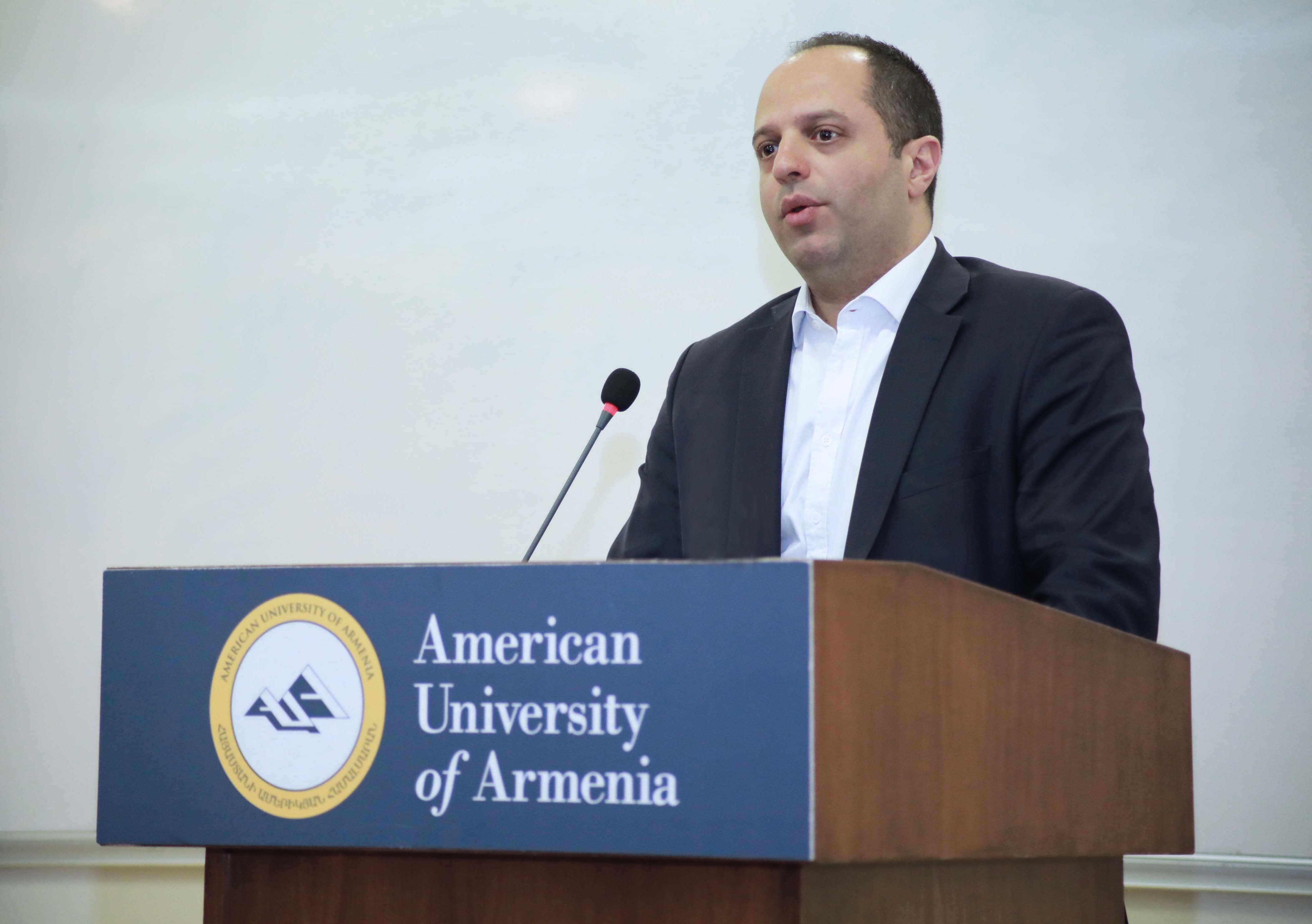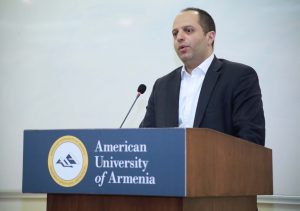
State, Society, and Genocide Prevention
2 min read YEREVAN, Armenia – On November 22, the American University of Armenia (AUA) Political Science and International Affairs (PSIA) program held a debate on the topic, “State, Society, and Genocide Prevention,” presented by Benjamin Abtan, president of European Grassroots Antiracist Movement (EGAM), and coordinator of the Elie Wiesel Network of Parliamentarians of Europe for the prevention of genocide and against genocide denial. The event was part of a series of PSIA seminars that are held on Wednesdays at 4:30 PM.
YEREVAN, Armenia – On November 22, the American University of Armenia (AUA) Political Science and International Affairs (PSIA) program held a debate on the topic, “State, Society, and Genocide Prevention,” presented by Benjamin Abtan, president of European Grassroots Antiracist Movement (EGAM), and coordinator of the Elie Wiesel Network of Parliamentarians of Europe for the prevention of genocide and against genocide denial. The event was part of a series of PSIA seminars that are held on Wednesdays at 4:30 PM.
Abtan began the presentation by explaining that, although the sovereignty of independent states is a cornerstone of the United Nations (UN) Charter, and therefore crucial for keeping world order, human rights violations within states have increased concerns over human rights protection. Abtan argued that states forfeit their sovereign rights when they violate or fail to protect the basic rights of their citizens. He advocated “humanitarian intervention” as a tool to end these violations and consequences which can occur threatening international peace and security, justifying it as a solution that could save millions of lives being abused by authorities. Looking at the genocide in Rwanda and the failure of the UN to prevent ethnic cleansing, it could be argued that the international community should take responsibility to prevent such catastrophes.
Moreover, poor states can provide security challenges for the powerful, well-governed states, especially taking into account the fact that, in today’s era of globalization, issues emerging in underdeveloped states can spill over and greatly impact other states. Terrorism, drug trafficking, human trafficking and other large-scale issues are a primary threat for the international community and should be prevented.
Thus, “The Responsibility to Protect” was introduced by the International Commission on Intervention and State Sovereignty in 2001, stating that states are responsible not only for controlling domestic affairs, but also for providing adequate governance and human rights protections for other states. Failing to do this means that states “forfeit their right of sovereignty” and international organizations have a right to intervene to save those people. Hence, interventions are justified and can be regarded as a means to protect and create peace in the world.
The presentation was followed by questions from the audience, during which a discussion emerged concerning the issue over which states should intervene in the name of humanism and, most importantly, what the real concerns of the intervening states are. It was argued that humanitarian intervention can be exploited by powerful states to promote their interests in a particular region, bringing more destruction rather than helping or saving lives.
The audience brought up examples of the US invasion in Iraq and the war in Afghanistan, as well as the destruction of Syria. They argued that people should consider whether humanitarian intervention causes more destruction than the domestic affairs of those countries. Intervention is a noble idea, however, in terms of implementation, it fails to provide humanism. The discussion concluded with the assessment that new mechanisms of providing humanitarian intervention should be introduced.
Founded in 1991, the American University of Armenia (AUA) is a private, independent university located in Yerevan, Armenia and affiliated with the University of California. AUA provides a global education in Armenia and the region, offering high-quality, graduate and undergraduate studies, encouraging civic engagement, and promoting public service and democratic values.




